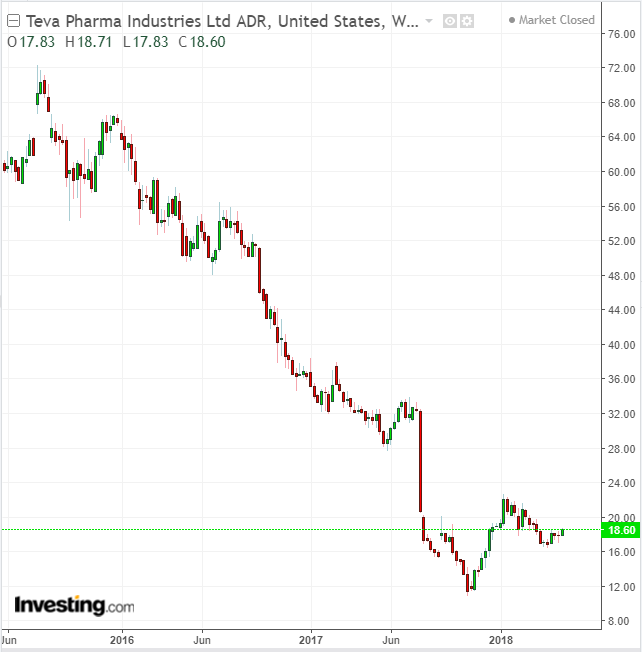- Reports Thursday, May 3, before the open
- Revenue Expectation: $16.89B, EPS: $2.31
When Teva Pharmaceutical Industries (NYSE:TEVA) reports earnings for its first-quarter on May 4, don’t expect fireworks. Kare Schultz, the CEO who took the helm of the generic and specialty medicine manufacturer this past November, has been very upfront about the company’s dismal growth prospects in the near-term. His strategy, to dampen investor expectations while he works on a massive belt-tightening campaign, has so far played out in his favor.

Teva shares have gained more than 50% so far during his still-new tenure, attracting interest from the world’s most successful value investor, Warren Buffett, whose Berkshire Hathaway Inc. (NYSE:BRKa) initiated a new position worth about $365 million in Teva, to become its tenth largest shareholder. But that initial euphoria may evaporate quickly if Schultz fails to show the market that his restructuring plan, which involves cutting about 25% of the company’s workforce, is moving ahead as originally planned.
Slippery Downward Slope, Complex Problems
Teva’s shares have been on a slippery-slope during the past three years as the company’s $41-billion acquisition of Allergan's (NYSE:AGN) generics unit failed to improve sales. The deal went sour at a time when the company lost its monopoly on Copaxone, the multiple sclerosis injection that at one point generated half of Teva’s profits.
In February, Teva said it won’t be able to charge as much as expected for new medicines amid escalating pressure on prices in the U.S. Sales this year may decline as much as 18% to $18.3 billion, about $1 billion less than analysts had estimated.
Another key detail to look for in Teva’s earnings call is how well Schultz's efforts to manage this drug maker’s precarious debt load are succeeding. Teva has more than $17 billion of debt due over the next five years. In a recent $4.5 billion,10-year bond sale, the company was successful in extending its maturities. However, it had to offer interest rates that junk borrowers pay.
It’s clear there's no quick fix for Teva’s complex problems, especially when the U.S. pharmaceutical industry is going through drastic changes, ranging from accelerated Food and Drug Administration (FDA) approval of competing medicines to government regulation that limits drug prices.
Bottom Line
Any positive surprise on the earning front should be enough to produce a powerful rally in Teva’s stock, now that investors have almost written off any hope for recovery in 2018. That scenario, however, puts more pressure on Schultz to deliver quickly.
